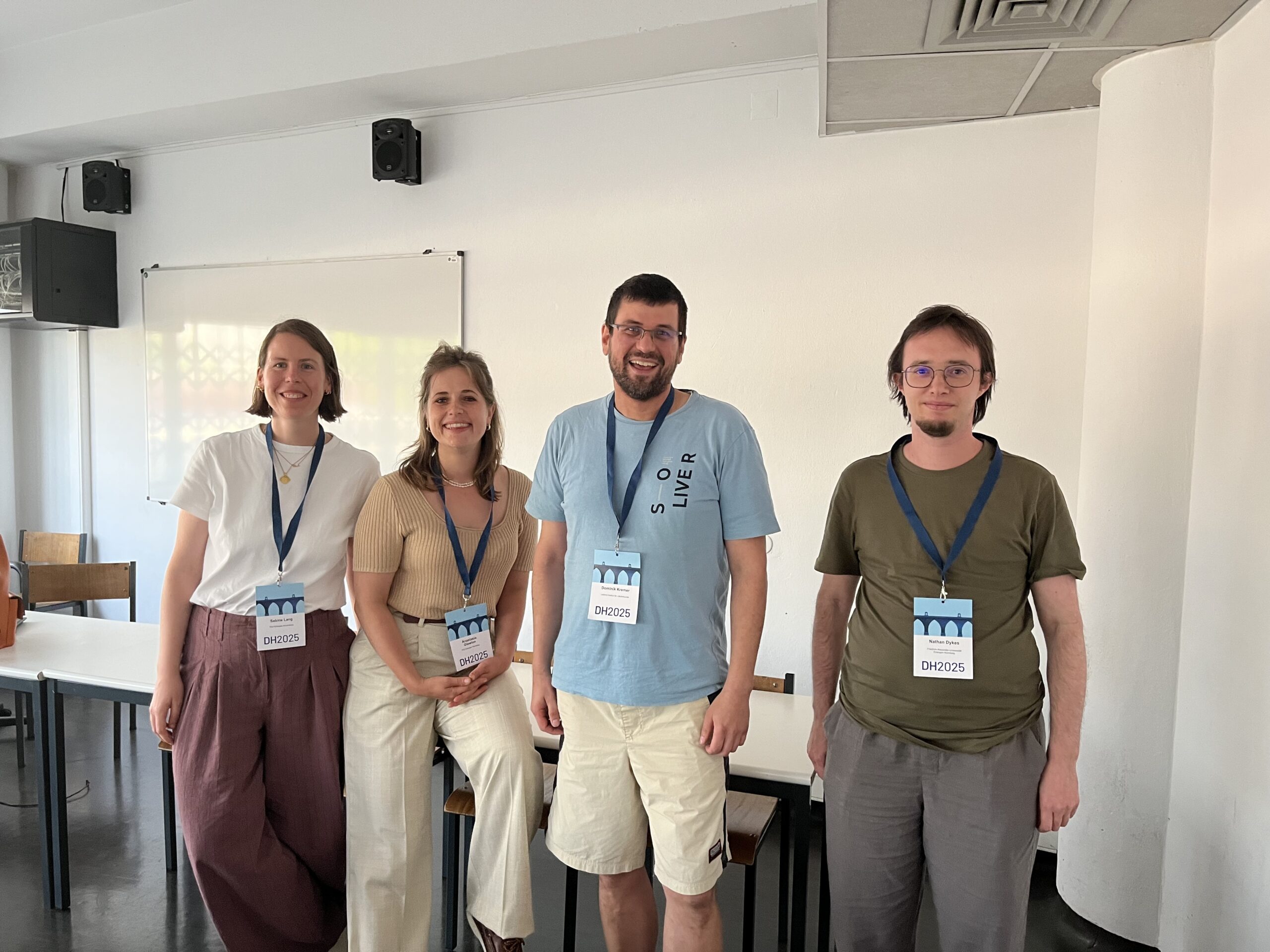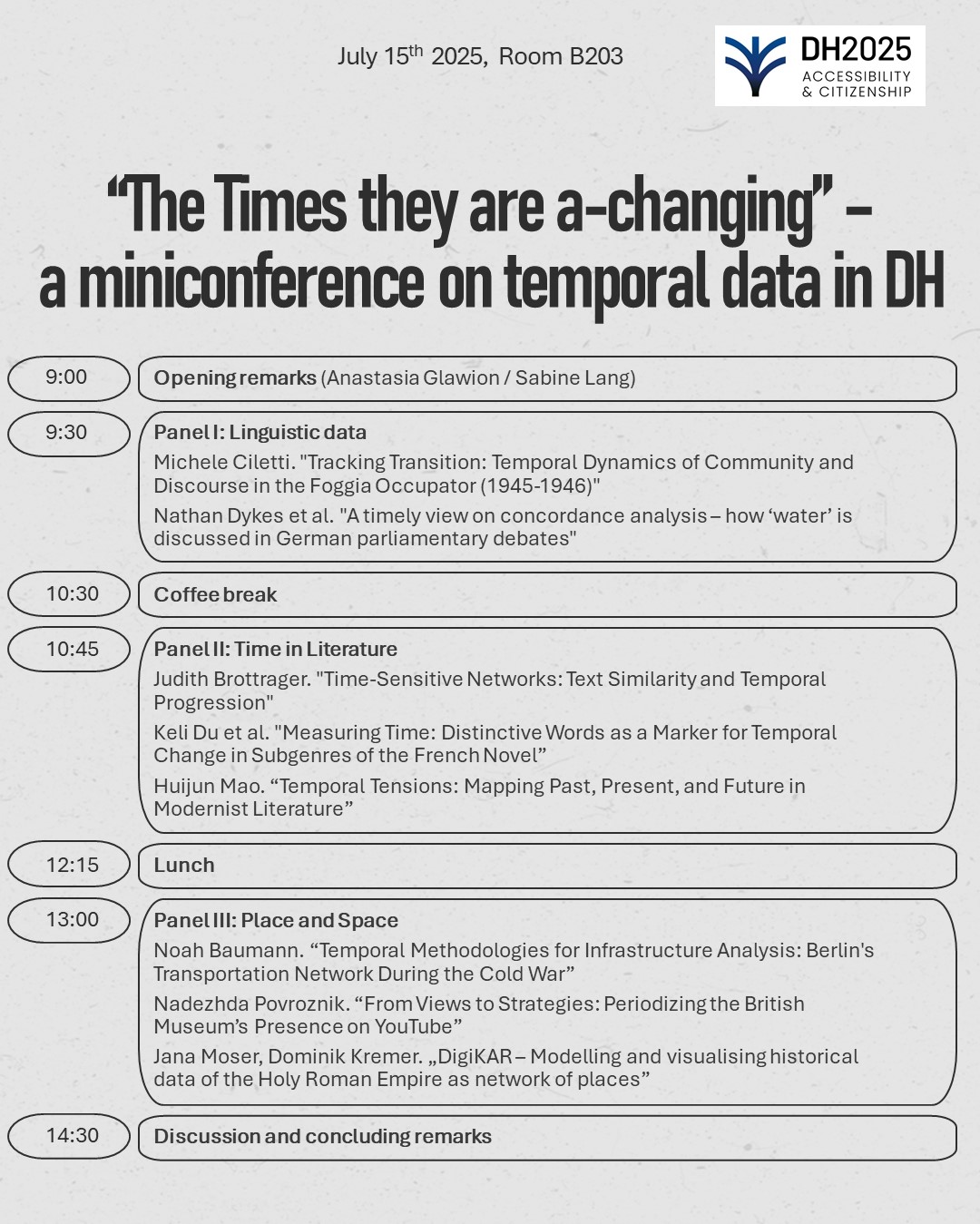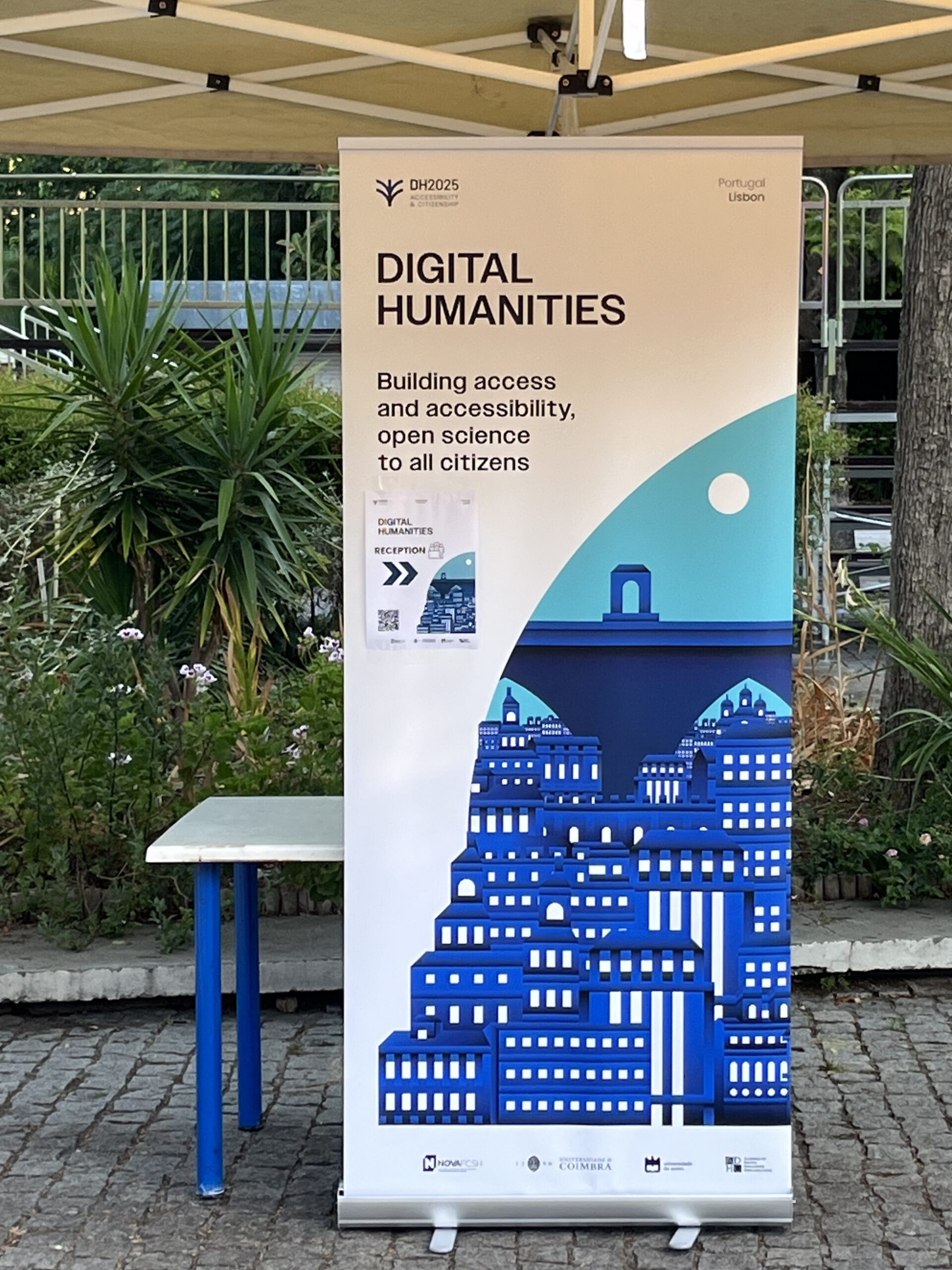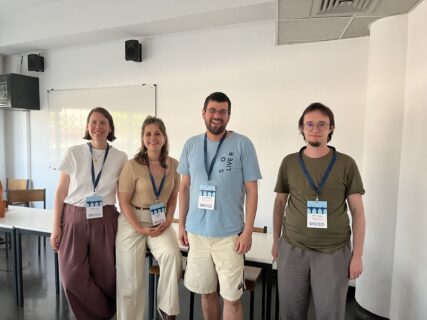Here’s what happened at DH 2025 in Lisbon

Here’s what happened at DH 2025 in Lisbon
The Digital Humanities Conference took place in Lisbon, Portugal, between 14 and 18 July. During this time, scholars from around the world presented and discussed DH research in numerous mini-conferences, panels, workshops, talks and poster presentations. The conference’s motto, ‚Accessibility & Citizenship‘, was discussed in relation to the potential and limitations of artificial intelligence, copyright, data licensing and privacy, and the question of how open data can be. The use of crowdsourcing in DH was also discussed. Other topics included data modelling and text and image analysis. However, one theme dominated the conference: the use of large language models for humanities research.

On Tuesday, 15 July, the DHSS held a mini-conference on the temporal dimension of data. Nathan Dykes, Anastasia Glawion, Marianna Grachova, Dominik Kremer, Sabine Lang, and , Andreas Wagner organised the event. Various talks were given at the mini-conference, approaching the aspect of time from linguistic, literary, art historical and geographical perspectives. Common themes included the fact that time is still often treated as a linear component in analysis, and that time itself has different dimensions and can refer to the past, present or future. Studying time almost always involves working with classification systems and encountering change.

On Thursday, 17 July, Anastasia Glawion and Dhara Lechner presented their work on the Grimm brothers‘ tales, focusing specifically on speech acts. On the final day of the conference, Sabine Lang talked about creating structured, FAIR provenance data and how this process can be integrated into teaching (and how this has been done at DHSS in the winter term 2024/2025).
Keynotes
The Digital Humanities conference began with an inspiring keynote: Javier Cha, Assistant Professor of Digital Humanities at the University of Hong Kong, opened the conference by talking about AI and the next frontiers of digital history. He specifically pointed to the problem that machine learning algorithms require a lot of power and how that negatively affects our climate. On Friday, 18th July, Roopika Risam, Associate Professor of Film and Media Studies and Comparative Literature at Dartmouth College, delivered the closing keynote speech, entitled ‚Digital Humanities for a World Unmade‘. Risam discussed how current US politics influence DH research, describing how research projects have been halted for using ‚forbidden‘ words and how funding has been cancelled. She concluded her talk with a powerful message: “The future of digital humanities in our world unmade requires: Access grounded in accountability. Repair sustained by care. Scholarship driven by solidarity.” [1]

Her full keynote (write-up) can be found here: https://roopikarisam.com/talks-cat/dh2025-keynote-digital-humanities-for-a-world-unmade/
The Digital Humanities conference 2026 will take place in Daejeon, South Korea, and will explore the theme of “Engagement”.
